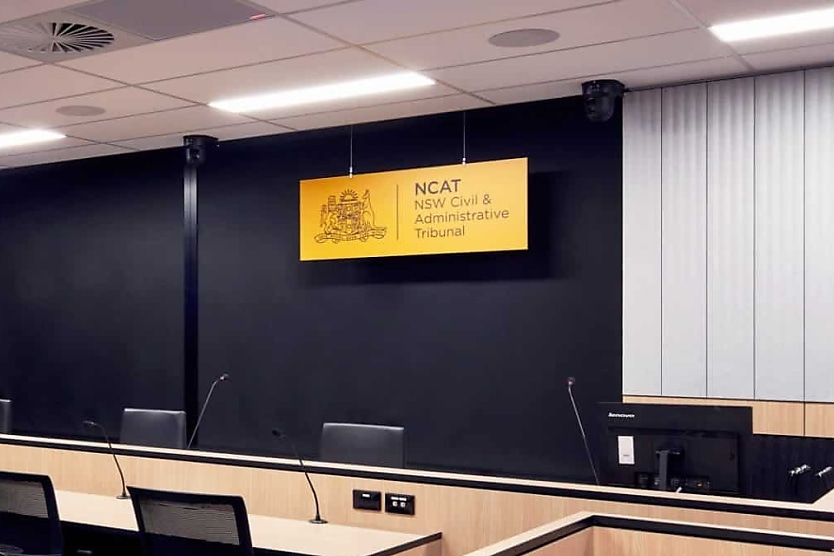
A solicitor has unsuccessfully sued a Sydney boutique firm after he claimed he was discriminated against because of his gender and demanded $5,000 in compensation for “injury to feelings”.
Lawyer Dawn Anters has had his case against law firm D G Thompson (DGT) dismissed after he claimed that the firm did not hire him based on his gender and marital status.
This came after Mr Anters filed a complaint with the NSW Anti-Discrimination board, demanding $5,000 in compensation, a letter of apology for “humiliation”, “insult”, and “injury to feelings” and for his two female interviewers at the firm to handwrite “I like MEN”, to be scanned and sent to him 10 times.
In this complaint, he claimed the firm did not offer him employment because of his sex and marital status, in what he alleged were breaches of the Anti-Discrimination Act 1977. Mr Anters also noted that the severity of the rejection was amplified by the fact that he found the interviewing lawyers “very attractive and beautiful”.
However, within the administrative and equal opportunity division of the NSW Civil and Administrative Tribunal, senior member Larissa Andelman and general member Dr Maree Murray disagreed with Mr Anters’ complaints and dismissed the claim.
The South Australia-based solicitor applied for the boutique firm in February 2022, and although he was living out of state, he said he would move to Sydney if successful.
Later that month, he interviewed via Zoom for a role, in conjunction with two other candidates — both female, and both offered jobs with the firm. In March, Mr Anters was rejected by the firm, which said that despite being “inundated with many very high-quality applicants”, Mr Anters included, it was unable to offer him a position.
Following this, in July 2022, Mr Anters sent a letter to the firm, asserting that he felt discriminated against because he was a man, because of the questions he was asked during the interview, as well as the fact that according to DGT’s website, all the solicitors at the firm were female.
According to the judgment, he also thought that DGT may have assumed he was female “because the name Dawn was an atypical male name”.
“Mr Anters was of the opinion that he was only invited for the interview because it was assumed he was female and that he was unhappy about the way two female interviewers treated him during the interview,” the judgment stated.
In his subsequent complaint to the NSW Anti-Discrimination board, Mr Anters wrote that he was “offended, embarrassed and humiliated” after failing to secure a role with the firm.
“Also, I have found both [my interviewers] very attractive and beautiful. Therefore, the magnitude of the offence and humiliation caused by the discrimination of someone to whom I am attracted to is far severe. Further, if I were not subject to discrimination, I would have been employed and started to work in April 2021. Thus, it also resulted in financial loss to me,” he stated in his complaint.
In addition, the solicitor submitted that he was asked questions about relocating with his family and whether he was comfortable working with females. The “manner and tone” in which these questions were asked made Mr Anters feel like he had been “subject to sex discrimination”.
However, DGT said that these questions arose from wanting to find out more about Mr Anters and whether he was coming to Sydney purely for the role or for other reasons, too — and both female interviewers noted that the internet connection was quite bad when conducting the interview.
The other two candidates both interviewed in person and both already lived in Sydney — and were described by DGT as “enthusiastic” and “experienced” compared to Mr Anters’ “stilted and formal manner”, which one of the interviewers said was “not a fit for the office”.
A number of those employed by the firm currently are male, including a costs consultant, a chief financial officer, and a practice manager.
Mr Anters insisted that DGT pay him $5,000 for injury to his feelings, requested a letter of apology from the firm, and demanded that both his female interviewers write “I like MEN” by hand using a “red ink pen on a piece of white paper no less than 10 times and scan and email this” to him.
In response to this, DGT submitted that Mr Anters had acted in a “demeaning and disrespectful manner” and sought costs on the basis that the claim was “frivolous and vexatious”.
The tribunal subsequently rejected the notion that DGT “purely favoured female candidates” and found a number of Mr Anters claims “entirely subjective”.
“The tribunal rejects Mr Anters’ claim that he has been discriminated against. There is no evidence that DGT treated him less favourably on the ground of his sex compared to how DGT would have treated another person who was not a man in the same or similar circumstances that are not materially different,” Andelman SM said.
During cross-examination in the proceedings, it also came to light that Mr Anters had made “numerous discrimination complaints” against employers who had not offered him a position. Two of these he could not discuss due to non-disclosure agreements.
“It was put to Mr Anters that he makes discrimination complaints as a way of making financial settlements with the respondents. It was also put to Mr Anters that his complaints are not genuine. Mr Anters strenuously denied both allegations,” Andelman SM said.
The tribunal dismissed the claim against DGT, as well as the application for costs.
RELATED TERMS
According to the Australian Human Rights Commission, discrimination occurs when one individual or group of people is regarded less favourably than another because of their origins or certain personality traits. When a regulation or policy is unfairly applied to everyone yet disadvantages some persons due to a shared personal trait, that is also discrimination.









